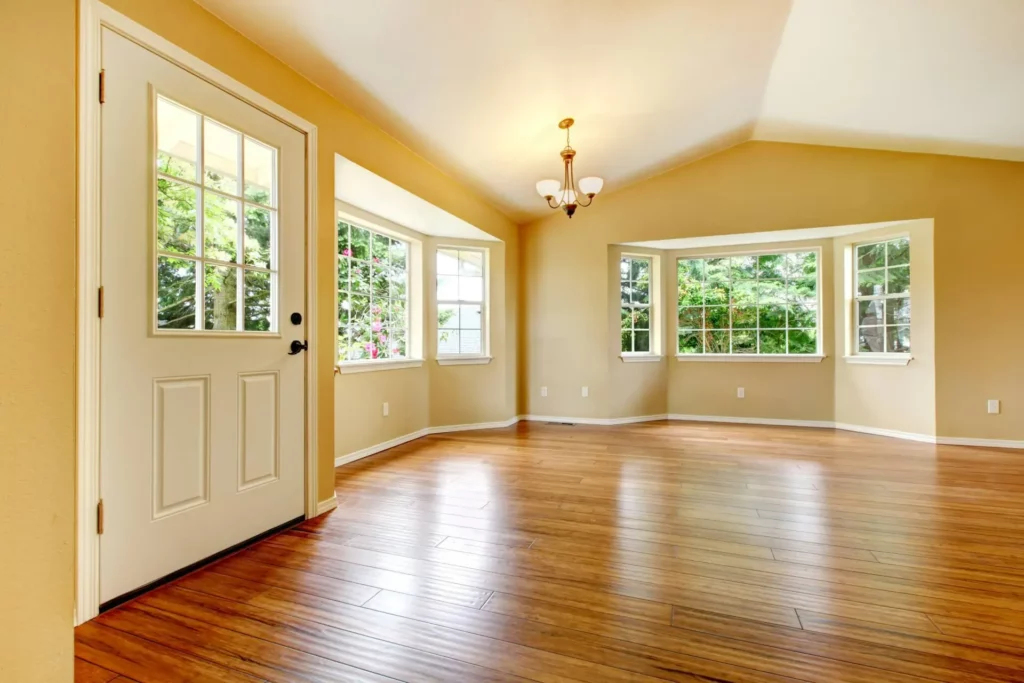Hardwood floors are a timeless choice for homeowners seeking elegance, durability, and easy maintenance. But did you know that hardwood floors can also play a significant role in improving indoor air quality and reducing allergens in your home? If you or your loved ones suffer from allergies, this blog is for you. We’ll explore how hardwood floors can make a positive impact on indoor air quality, discuss the potential allergens associated with different flooring types, and provide tips on maintaining a healthier home environment.
The Link Between Allergies and Indoor Air Quality
Before we dive into the benefits of hardwood floors for allergy sufferers, let’s understand the connection between allergies and indoor air quality. Allergies are hypersensitive reactions to substances in the environment called allergens. Common indoor allergens include dust mites, pollen, pet dander, mold spores, and even cockroach droppings. These allergens can trigger sneezing, congestion, itchy eyes, and other allergy symptoms.
One of the key factors influencing indoor air quality is the type of flooring in your home. Flooring materials can either trap or help eliminate allergens, making a noticeable difference in the air you breathe indoors.
Why Hardwood Floors Are Allergy-Friendly
- Easy to Clean
Hardwood floors have a smooth and non-porous surface, making them easy to clean and maintain. Unlike carpets that can trap allergens deep within their fibers, hardwood floors allow allergens to remain on the surface, making it simpler to remove them through regular cleaning practices.
- No Fibers or Grout Lines
Carpets and some tile flooring options have fibers and grout lines where allergens can accumulate and hide. Hardwood floors eliminate these hiding spots, leaving nowhere for allergens to linger.
- Reduced Dust Mite Habitat
Dust mites are microscopic creatures that thrive in warm, humid environments. Carpets provide an ideal habitat for dust mites, as they can burrow deep into the fibers. Hardwood floors, on the other hand, create an inhospitable environment for dust mites, as they prefer soft surfaces.
- Fewer Allergen Traps
Certain flooring types, such as rugs and carpets, can harbor allergens and release them into the air whenever someone walks or vacuums over them. Hardwood floors minimize this effect, as allergens are less likely to become airborne.
Choosing the Right Type of Hardwood Flooring
Now that you know hardwood floors can be a boon for allergy sufferers, it’s essential to choose the right type of hardwood flooring for your home. Here are a few considerations:
- Engineered Hardwood vs. Solid Hardwood
Engineered hardwood consists of multiple layers of wood with a real hardwood veneer on top. Solid hardwood, as the name suggests, is made from a single piece of wood. While both options are great, engineered hardwood tends to be more stable and less susceptible to moisture-related issues, which can affect indoor air quality.
- Sealant and Finish
Opt for a low-VOC (volatile organic compounds) finish or sealant when installing hardwood floors. VOCs are chemicals that can be harmful to indoor air quality and human health. A low-VOC finish will help ensure your hardwood floors don’t release harmful chemicals into the air.
- Maintenance
Keep your hardwood floors clean and well-maintained to maximize their allergy-fighting benefits. Regular sweeping and damp mopping can help prevent allergen buildup.
Maintaining a Healthy Home Environment
In addition to choosing hardwood floors, here are some tips for maintaining a healthier home environment for allergy sufferers:
- Use Doormats
Place doormats at entry points to reduce the amount of dirt, pollen, and allergens that enter your home on shoes.
- Invest in High-Quality Air Filters
Use high-efficiency particulate air (HEPA) filters in your HVAC system to capture allergens circulating in the air.
- Vacuum Regularly
If you have area rugs or carpets in your home, use a vacuum cleaner equipped with a HEPA filter to effectively trap allergens. Empty the vacuum cleaner outside to prevent allergens from re-entering your indoor environment.
- Control Humidity
Maintain a relative humidity level between 30% and 50% in your home to deter dust mites and mold growth.
- Wash Bedding and Curtains
Regularly wash and clean bedding, curtains, and other textiles to reduce allergen buildup.
Conclusion
Hardwood floors in Chicago offer numerous benefits for allergy sufferers, from easy maintenance to a reduced likelihood of allergen accumulation. By choosing the right type of hardwood flooring and following some basic maintenance tips, you can significantly improve your indoor air quality and create a more allergy-friendly home environment. Remember, it’s essential to consult with flooring professionals for the best advice on selecting and installing hardwood floors tailored to your specific needs and preferences. With hardwood floors, you can enjoy both the beauty of your home and the peace of mind that comes with breathing cleaner air.

